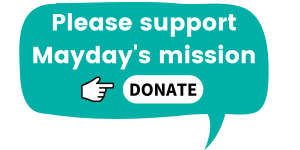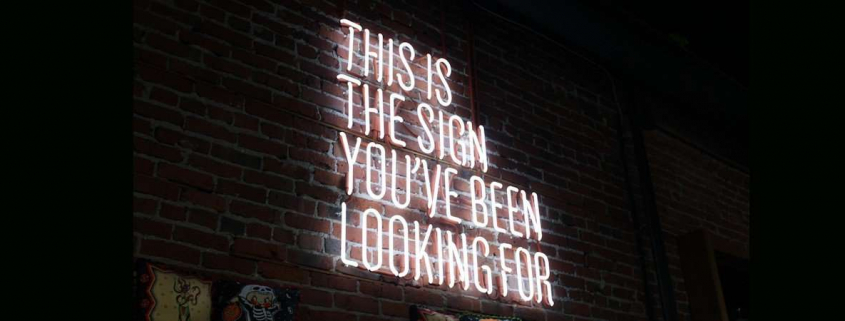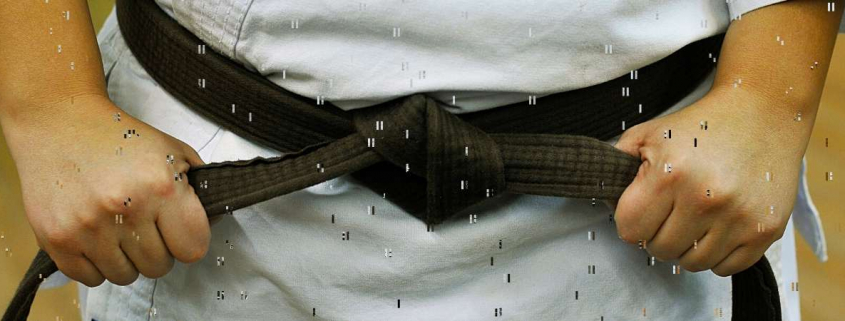Pat McArdle, looks back at where Mayday Trust began, how the Person-led, Transitional and Strength-based (PTS) Respnse developed into what it is today – the good, the bad and the ugly.
Pre-diabetic; does not eat a healthy diet; has little family contact but would like more; does not drink a lot as can be argumentative; stated has never used drugs and has no issue with budgets.
This would never have been the way that I would have thought of introducing myself a couple of years ago. But more and more this is becoming my norm. It’s all part of my attempt to convince the homeless and supported housing sector to sit up and reflect on how issue-led we have become and how we are letting the system we have in place lead decisions, not the people these decisions will affect. So I introduce myself like this to illustrate that sitting with a total stranger who is asking questions about a person’s needs and risks has only managed to, at best, re-traumatise or, at worst, institutionalise a decade or more of ‘homeless people’.
It turns out that people experiencing homelessness are able to disclose their most personal information at the drop of a hat.
I would like to have said that Mayday recognised these things and decided that we needed to change our approach to tackling homelessness. The honest answer is that, in reality, austerity was the initial driver. But soon enough, our mission became the purpose.
Being bold in the face of austerity
In 2011 Mayday was a medium-size supported housing provider, trying to tackle homelessness. We watched larger housing associations lose contracts in one area and pick them up in another. Our dilemma was that there were people dangling at that end of those contracts. Our research showed that 70% of people who were categorised as ‘non-priority homeless’ were unlikely to get any sort of support as the result of austerity and the change in government thinking.
At that point Mayday was 100% state funded with a turnover of £3m. The sector experience was that the state provided for those most vulnerable; there was a moral obligation to do so and the scale of the problems was too large for communities and civil society to cope with. But it was clear that things were changing and the future experience would be different. I remember a meeting with an MP from Bedford who challenged me when I said Mayday was a voluntary sector organisation, ‘how could that be when all our money came from the Local Authority?’
Listening to the people we are trying to help
So in 2011, we predicted that this was not a rainy day situation; this was climate change. I was taken on to look at a merger and acquisition options as the Board of Directors knew that, even as a medium-sized charity, we were too small to survive. We came close to a merger but before we took that final step we decided to review what we did. We started talking to people experiencing homelessness, both on the street and those living with Mayday – properly talking and listening to them.
We simply asked people what they thought of homeless services and what impact these services had on their lives.
We spoke with several hundred people and collated over 100 accounts in a series of blogs, which we printed in a booklet called Wisdom from the Street. We didn’t ask what people needed or why they had become homeless. We simply asked what they thought of homeless services and what impact these services had on their lives. Little did we know the impact that these blogs would have on Mayday’s future vision and direction.
Changing direction based on what’s needed and what works
Contained in Wisdom from the Street is a very powerful account of what people had to say. Two things that came through very clearly:
- Current systems and processes are not working for people who become homeless. The humanity and individuality of a person’s situation is lost. The experience of the system reinforces helplessness, hopelessness and exclusion from the community for people experiencing homelessness.
- The outcomes aren’t good enough. Too many people are either trapped in the system or move on only to return with a feeling of another failure under their belt.
This feedback started Mayday on a very different journey. We made the pivotal decision then not to survive for survival’s sake and not to campaign to keep a system going that was clearly broken.
We set about researching ‘what works’, looking for evidenced-based work that we could develop in response to what people were telling us. We developed a new, person-led, and what we call ‘strength-based’ way of working. For us at Mayday, strength-based describes a system of support that allows the person to have control over their own life and find their own resources to help them get back into their community.
So before we faced any austerity cuts we got all the staff together and we presented our new vision and direction. We told staff the reason we were changing – we were very open and honest. We gave everyone the option to buy into a new way of working or to take their redundancy. We didn’t want staff to be redeployed into what was fast becoming a collaborative of social activists from what they had known – a very structured organisation – unless they had bought into the concept. We lost 50% of the staff at that time but within 4 weeks we had re-recruited and set about what we now understand to be co-production: working with people living with us and staff to develop a radically different response to tackling homelessness.
We were very fortunate that our Northamptonshire commissioner came on board and varied our contract so that we were able to do what we needed to do. We threw out pretty much all of our previous policies and processes. We learnt hard lessons but the results were staggering.
People we worked with started to move on positively and many of those who had been homeless for years were getting involved and starting to thrive in their local community
The new response focuses on three key interventions:
- One-to-one coaching, which focuses on people’s strengths and allowing them to take control.
- Building positive networks outside the housing and homelessness sector, as many people told us they has been alienated from ‘normal’ society.
- Brokering individual opportunities, as people experiencing homeless are not a homogeneous group so need personal escape plans from homelessness.
Overall we knew we needed to shift the power from the services and the system to the person.
Taking a new approach with better results
Now our approach is to meet with people briefly, tell them what we are about and give them the option if they want to get involved. We don’t talk to people about their ‘issues’ but begin with conversations that are just about getting to know the person. So we meet people wherever they want to meet us and talk about whatever they want to talk about.
We meet people wherever they want to meet and talk about whatever they want to talk about.
In a short space of time we have seen so many examples of significant individual outcomes. Dave, for example, agreed to meet up with a PTS Coach for a coffee and to talk about remote-controlled cars. There was no ‘fixing’ Dave’s issues, no focusing on his weaknesses. The Coach didn’t talk about his drug use or that he was living in a tent. We never said he had to attend sessions with a Coach. We let Dave have the choice and control and his Coach worked to empower Dave to get in contact with his passion, who he was, what he wanted.
Dave applied for a personal budget and got a car kit. That Christmas he went home to his family who he hadn’t seen in 12 years. Within 8 months he had accessed his own flat where he has lived for the last 2 years. More recently, through his attendance at a car rally, he met someone at BMW who encouraged him to apply for a position there. He is now working for in his dream job. Over time Dave realised what was possible and he made it happen.
Here’s how we did it
The experience of delivering the new person-led work was transformative and not just for the staff delivering at grassroots. The response necessitated change at every level within the organisation; how we selected and recruited staff, our financial reporting, the Board of Trustees, our appetite for risk, our language – it was cultural, structural and total system change.
The response necessitated change at every level within the organisation.
So we slowly got braver and decided to move away from just chasing statutory contracts. By this point these contracts had become about delivering more for less; a race to the bottom on price as local authorities tried to respond to austerity. We began to seek investment into our new way of working and we were fortunate to attract investment for a proof of concept project in Oxfordshire.
When we started delivering the proof of concept, we discovered that the model not only required our internal transformation but that our approach wasn’t fitting in with how other organisations were working. We were starting to disrupt the norm. We were trying to deliver a person-led service within an issues-focused and needs-led system.
So in collaboration with Homeless Link, we held two national conferences in London and Manchester. These were to promote Wisdom from the Street and to share the lessons that we had learnt from co-producing and delivering a person-led, strength-based model.
And how we’re making the changes stick
In October 2015, Mayday’s Board of Trustees made the decision to focus the future vision and direction of the Trust on two strategic goals:
- Deliver the new model of work developed by Mayday named the Personal Transition Service, now referred to as the Person-led, Transitional and Strength-based (PTS) Response: being the first person-led and asset/strength-based approach tackling homelessness, developed at the grassroots; and aiming to become a catalyst for change by empowering individuals experiencing homelessness to take control of their lives and environment.
- Use the learning from the Wisdom from the Street to influence nationally the need for system change and the need to transform services to embed person-led and strength-based approaches.
This meant that 2016 became a very tough year for us. By focusing solely on delivering the PTS we had to withdraw from contracts and services that we had delivered for many years. We did the best we could for the people and staff in those areas but it was a very difficult time. There is no doubt that this process had a huge human cost. Mayday reduced in size from 70 to 45 staff and turnover of £4m to £2.2m.
We had no great ambition to become a large national provider so in 2016 we developed the PTS Partnership to deliver the PTS wider and with the aim of affecting system change. These partnerships were with like-minded people who were as passionate as Mayday about creating the paradigm shift that needed to happen.
We found other people who were frustrated with the system, who weren’t afraid to speak up or to transform their organisation from top to bottom. The relationship we share is strong because we have come together through a common goal and set of values rather than just a willingness to survive. By doing this Mayday halved in size in the first year but with our partners, we intend to double our impact.
Change will come from listening to people, getting to know people’s context, and always knowing that we are all different.
There are many organisations saying that they have been doing similar work. Indeed many new great initiatives evolved from many disciplines, such as Housing First, PIE (Psychologically Informed Environments) and Trauma Informed Care. So gradually a movement for change is building.
What Mayday believes, and will continue to inject into the discussions, is that the solution to homelessness will fundamentally not come from psychiatry, sociology, psychology, the housing sector – although all the focus and thinking in these areas is invaluable. Instead, change will come from listening to people, reflecting, getting to know people’s context, understanding and always knowing that we are all different. So let’s keep it person-led, not system-led.
About the author
Pat McArdle is a passionate advocate for systemic change within the UK housing and homelessness sector. Pat has over 30 years of experience in the U.K. and Ireland, working with organisations such as the Foyer Federation, Cork Simon Community and YWCA England and Wales. As CEO of Mayday Trust from 2011 to 2021, Pat led the transformation of the organisation from a traditional supported housing provider, to a leader of Person-led, Transitional and Strength-Based practice and a national influencer for systemic change.
For us to keep sharing opinions and voices that may not always be popular or heard we need your help:












